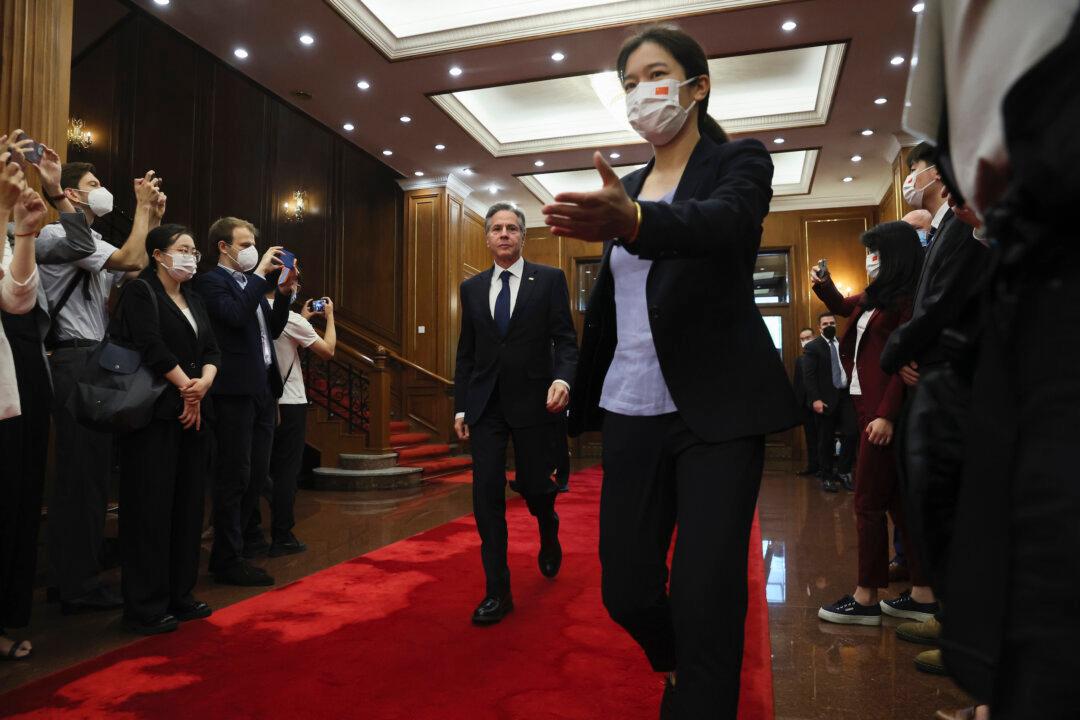Secretary of State Antony Blinken’s trip to China gave Beijing the perfect opportunity to stage a propaganda coup while bringing little benefit to the United States, according to analysts.
The two-day trip—marking the first such visit by a U.S. top diplomat in five years—ended on June 19 with Blinken holding talks with Chinese foreign minister Qin Gang, Beijing’s top-ranking diplomat Wang Yi, and for a little more than half an hour, regime leader Xi Jinping.





